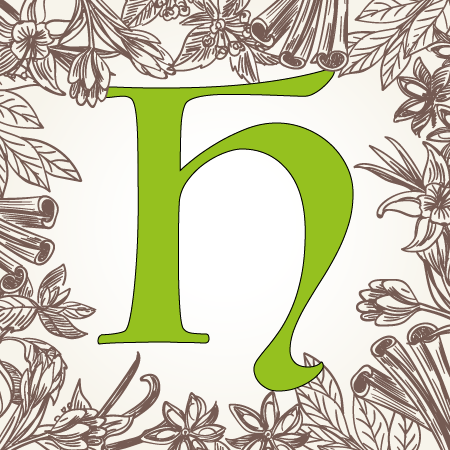Medical Research Confirms Health Benefits of Plantain Herb
Hwits End, an organic market garden on the banks of the Suikerbos River in southern Gauteng, has begun marketing a herbal tea used for centuries in traditional medicine and confirmed by recent medical studies to be effective in treating bronchial congestion, bronchitis, colds, coughs, fever and soreness of the breathing passages and throat.
The herb Plantago lanceolata, a species of flowering plant, is known by many names around the world, including buckhorn, English plantain, lamb’s tongue and ribwort. One of the most comprehensive reviews of the health benefits of the herb is the European Medicines Agency’s Committee on Herbal Medicinal Products (HMPC) Assessment Report1 published in 2011. It lists 118 references2 supporting its assessment.
One paper of particular note is a 1997 study by Kraft3 on the efficacy and safety of a cough syrup containing fluid extract from Plantago lanceolata administered to 593 patients ranging in age from one to 88 years, with an average of 42. The main diagnoses were acute respiratory infections (32% of the patients), acute bronchitis (28%) and irritative cough following acute respiratory infections (18%). Treatment lasted for between three and 14 days.
Intensity and frequency of coughing was reduced by 67% and 66%, respectively. Thoracic pain decreased by 80%, irritative cough and dyspnoea (difficult or laboured breathing) by 69%.
Also included in the EMA report are the findings of a Wegener & Kraft 1999 study4 which states that, because of its positive benefit-risk-ratio, Plantago lanceolata is recommended even for children for the treatment of moderate chronic irritative cough.
Co-owner of the market garden, Matthew White, who at the age of 81 still works full-time, decided to market the herb tea after dosing himself with it to relieve persistent and severe bronchial congestion that made it difficult for him either to breath or sleep.
“I read up on the herb, and found that, based on clinical data, the World Health Organization recommends5the Plantago genus for use in reducing blood sugar that has increased after a meal, irritable bladder syndrome, diverticulitis, constipation caused by a duodenal ulcer, haemorrhoids, and to reduce the risk of coronary heart disease as an adjunct to diet in treating hypercholesterolemia (high blood cholesterol level).5
Further, Plantago is also known6 to:
- Accelerate skin regeneration,
- Have bactericidal and anti-diarrheal effects,
- Be useful against insect and snake bites, toothaches, and as an immunity enhancer, and
- Selectively inhibit the proliferation of CAL51 triple-negative breast cancer cells, and have a minor effect on the other breast cancer cell types studied7.
“I collected the herb, which grows wild in the garden, made a tea from it and drank one cup in the morning and another on going to bed. My breathing started to improve almost immediately and on the second evening I fell asleep quickly and slept soundly. The taste is mild and pleasant, not unlike Chinese Green Tea. I have experienced no unpleasant side effects, nor are any cited in the literature.”
When, subsequently, his wife suffered a bout of chest congestion, she also drank the tea with similarly positive results.
The Hwits End Market Garden has been in the Whites’ family for more than 40 years. In that time, according to White, no herbicides, pesticides, other poisons, growth regulators, livestock feed additives, nor any artificial fertilizers, have been used on the land.
The garden is now producing the herb tea in commercial quantities and marketing it under the brand name Plantago Elixir Tea direct to the public and to health shops. The retail price for the product direct from the garden is R180 per 100g pack — enough to make more than 300 cups of herbal tea. The price includes shipping within South Africa to a Pep store near the customer.
For more information, or to order, email: plantago@hwitsend.com
Dislaimer: The information provided in this release is for educational purposes only and does not substitute for professional medical advice. Results may vary from person to person. Consumers are advised to consult a medical professional or healthcare provider if seeking diagnoses or treatment. For maximum benefit, it is recommended that this product be consumed in conjunction with a healthy diet and exercise routine.
REFERENCES:
2 ema.europa.eu/en/documents/herbal-references/final-list-references-supporting-assessment-plantago-lanceolata-l-folium_en.pdf
3 Kraft, K. (1997). Therapeutisches Profil eines Spitzwegerichkraut-Fluidextraktes bei akuten respiratorischen Erkrankungen im Kindes- und Erwachsenenalter. In: Loew, D., Rietbrock, N. (eds) Phytopharmaka III. Steinkopff. https://doi.org/10.1007/978-3-642-95993-6_17
4 Wegener T, Kraft K. Der Spitzwegerich (Plantago lanceolata L.): Reizlinderung bei Infektionen der oberen Atemwege [Plantain (Plantago lanceolata L.): anti-inflammatory action in upper respiratory tract infections]. Wien Med Wochenschr. 1999;149(8-10):211-6. German. PMID: 10483683.
5 Haddadian, Katayoon & Zahmatkash, Mohsen. (2014). A review of Plantago plant. Indian Journal of Traditional Knowledge. 2014;13(4):681–5.
6 Pol, Michal, Schmidtke, Knut and Lewandowska, Sylwia. “Plantago lanceolata – An overview of its agronomically and healing valuable features” Open Agriculture, vol. 6, no. 1, 2021, pp. 479-488. https://doi.org/10.1515/opag-2021-0035.
7. Alsaraf KM, Mohammad MH, Al-Shammari AM, Abbas IS. Selective cytotoxic effect of Plantago lanceolata L. against breast cancer cells. J Egypt Natl Canc Inst. 2019 Dec 30;31(1):10. doi: 10.1186/s43046-019-0010-3. PMID: 32372137.
